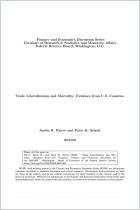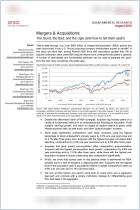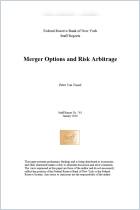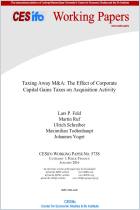
Evidence for the Effects of Mergers on Market Power and Efficiency
Read or listen offline
Amazon KindleRecommendation
When a corporation announces a prospective merger, markets react: Target company shares soar, and acquiring company leaders reap plaudits for boldness and vision, while board members vote themselves and executives huge bonuses for negotiating the deal. Clearly money changes hands, but what effects do mergers and acquisitions have on the economy in general? This thought-provoking study by economists Bruce A. Blonigen and Justin R. Pierce looks into whether M&A increases productivity or simply raises prices. getAbstract recommends this technical analysis of productivity and price at US manufacturing plants to economists and executives.
Summary
About the Authors
Bruce A. Blonigen is a professor of social science at the University of Oregon. Justin R. Pierce is a principal economist with the Board of Governors of the Federal Reserve System.























Comment on this summary